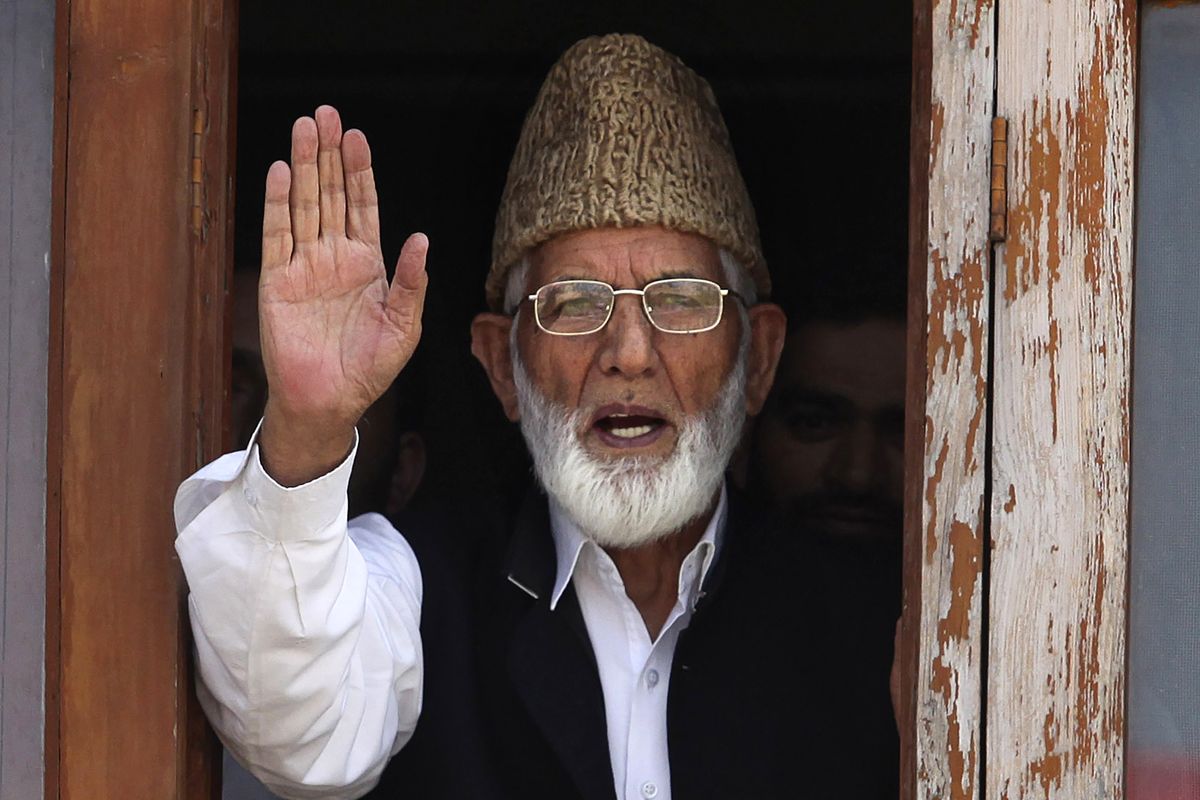Kashmir lockdown continues after anti-India leader’s death

SRINAGAR, India — Indian authorities enforced a security lockdown and a near-total communications blackout for a second day in disputed Kashmir on Friday after the death of Syed Ali Geelani, a top resistance leader who became the emblem of the region’s defiance against New Delhi.
Geelani’s death at age 91 on late Wednesday and the ensuing crackdown on public movement and communications by Indian authorities highlighted the turmoil seething just below the surface in the Himalayan region of achingly stunning beauty.
Wearing flak jackets and riot gear, armed police and paramilitary soldiers patrolled streets in Srinagar, the region’s main city, and ordered residents to stay indoors.
Razor wire, steel barricades and parked armored vehicles blocked some streets in the city as officials anticipated anti-India protests after weekly congregational Friday prayers.
Geelani, who had multiple ailments and was under house arrest for years, was buried by Indian authorities without any family members present after police snatched his body early Thursday, said his son, Naseem Geelani.
Police denied that Geelani’s body had been forcibly buried and called it “baseless rumors” by “some vested interests.”
India’s archrival Pakistan, which administers another part of Kashmir, observed a day of mourning on Thursday and condemned Geelani’s non-public burial.
Geelani spearheaded Kashmir’s movement for the right to self-determination and was a staunch proponent of merging Kashmir with Pakistan. For many in Kashmir and beyond, he was an enduring icon of defiance against India.
Many Kashmiris were incensed that they were unable to participate in his last rites.
“In life, they feared him and caged him,” said Bashir Ahmed, a trader in Srinagar. “In his death, the fear of him forced them to snatch his body and cage us all inside our homes.”
The anger was magnified after a video widely shared on social media purportedly showed Geelani’s relatives, mostly women, frantically tying to prevent armed police from forcing their way into the room where his body, wrapped in the flag of Pakistan, was being kept. It showed women wailing and screaming as police took the body and locked his family and relatives inside the room.
Police said in a statement Thursday that they “facilitated in bringing the dead body from house to graveyard as there were apprehensions of miscreants taking undue advantage of the situation.”
Kashmir has long been a flashpoint between India and Pakistan, both of which claim the entire region.
Rebels have been fighting against Indian rule since 1989.
India describes the armed rebellion as Islamabad’s proxy war and state-sponsored terrorism. Most Muslim Kashmiris consider it a legitimate freedom struggle and support the rebel goal that the territory be united, either under Pakistani rule or as an independent country.
The region is one of the most heavily militarized in the world. Tens of thousands of civilians, rebels and government forces have been killed in the raging conflict.
Tensions flared in the region in 2019 after New Delhi stripped Kashmir’s semi-autonomy, scrapped its statehood and removed inherited protections on land and jobs. Authorities have since brought a slew of new laws, which critics and many Kashmiris fear could change the region’s demographics.